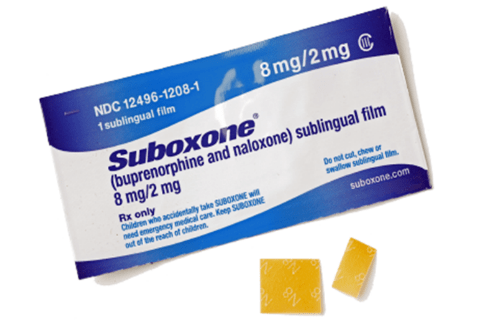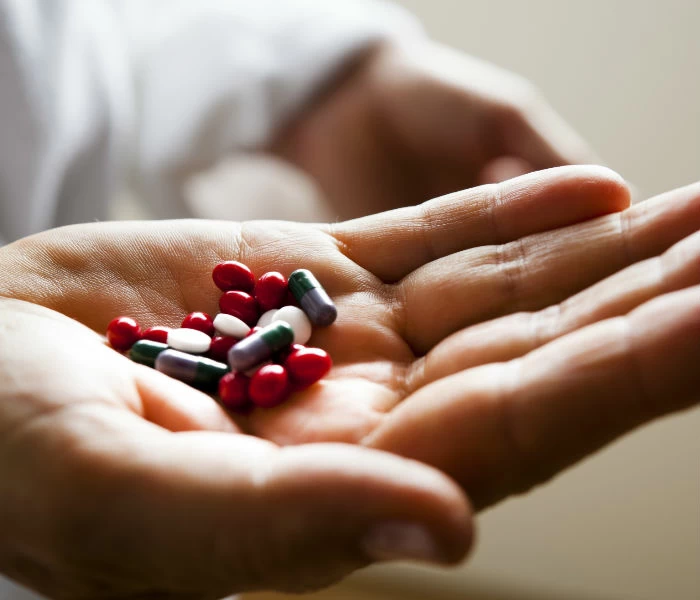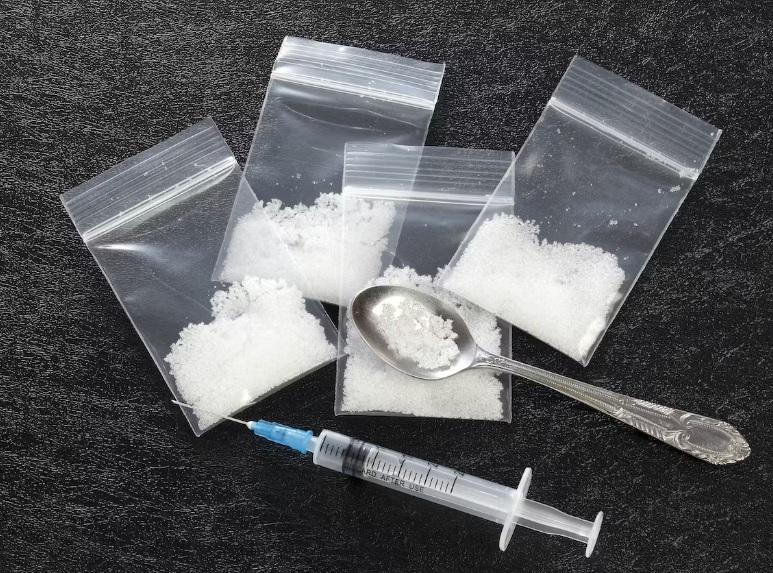Is Suboxone Addictive?
Hope can seem elusive for individuals caught in substance dependence, and questions about treatment options are abundant. Among these options, Suboxone has emerged as a critical player in addiction therapy. This article delves into the question that lingers in many minds: Is Suboxone addictive? We’ll explore the symptoms and signs of Suboxone addiction and the withdrawal challenges. Furthermore, we’ll show how Suboxone is a therapeutic tool in the relentless fight against addiction. Join us on this informative journey to better understand the intricate relationship between Suboxone and addiction treatment.
If you or a loved one is struggling with opioid addiction, consider Suboxone withdrawal treatment at We Level Up Treatment Center for a safe and supportive recovery journey.
How Addictive Is Suboxone?
Suboxone is a medication used to treat opioid addiction, and it contains two active ingredients: buprenorphine and naloxone. The addiction potential associated with Suboxone is significantly lower when compared to full opioid agonists like heroin or prescription painkillers. Here’s an explanation of how addictive Suboxone is:
- Partial Agonist: Buprenorphine, one of the components in Suboxone, is classified as a partial opioid agonist. This means it activates the same opioid receptors in the brain as full agonists (e.g., heroin or oxycodone) but to a lesser extent. As a result, it has a ceiling effect, meaning its opioid effects level off even if higher doses are taken. This limits the euphoria and respiratory depression associated with full opioid agonists, reducing the potential for addiction.
- Naloxone Component: Naloxone is included in Suboxone to deter misuse. If someone attempts to inject or misuse Suboxone by crushing and snorting it, the naloxone can precipitate withdrawal symptoms, making misuse less rewarding and reinforcing.
- Supervised Administration: Suboxone treatment is typically administered under medical supervision or through a structured treatment program. This reduces the likelihood of misuse and diversion, as patients can’t quickly obtain large quantities of the medication.
- Reduces Cravings and Withdrawal: Suboxone helps individuals manage withdrawal symptoms and cravings, making focusing on recovery and rehabilitation easier. This can further reduce the desire to seek out and use opioids.
- Individual Variability: While Suboxone has a lower addiction potential than many other opioids, it’s not entirely risk-free. Some individuals may still develop a dependence on it, especially if they misuse or abuse the medication.
- Tapering and Treatment: Suboxone is often part of a comprehensive treatment plan that includes counseling and therapy. Over time, the goal is to gradually reduce the dosage of Suboxone until the individual can eventually discontinue it altogether, which can help minimize any potential for long-term dependence.
In summary, Suboxone is considered less addictive compared to full opioid agonists, and it plays a crucial role in opioid addiction treatment. However, like any medication, it should be used under medical supervision and as part of a comprehensive treatment plan to minimize the risk of misuse and dependence. It’s essential for individuals seeking Suboxone treatment to follow their doctor’s guidance closely to achieve the best outcomes in their recovery journey.
We Level Up Treatment Center offers expert Suboxone withdrawal treatment, providing individuals with the compassionate care and medical expertise they need to overcome addiction.

Skip To:
Learn More:
- Suboxone Withdrawal Symptoms, Timeline & Detox
- Subutex vs Suboxone, What’s The Difference Between Them?
- What Is Suboxone? Suboxone Side Effects. Buprenorphine vs Suboxone. How Long Does Suboxone Stay In Your System?
- Suboxone Detox, Withdrawal Symptoms, Timeline & Treatment
- Suboxone Withdrawal Psychosis
Is Suboxone Addictive Fact Sheet
Suboxone Overview
Suboxone is a medication used in the treatment of opioid addiction. It contains a combination of buprenorphine and naloxone, which work together to reduce withdrawal symptoms and cravings for opioids.
Buprenorphine is a partial opioid agonist that activates the same receptors in the brain as opioids, but to a lesser degree, which can help reduce cravings and withdrawal symptoms. Naloxone is an opioid antagonist that can reverse the effects of opioids and prevent abuse of Suboxone by injection.
Suboxone is administered sublingually (under the tongue) in a film or tablet form and is typically used in combination with counseling and other support services as part of a comprehensive treatment plan.
Side Effects of Suboxone
Common side effects of Suboxone can include constipation, nausea, vomiting, headache, dizziness, and sweating. Less common side effects may include allergic reactions, respiratory depression, and liver problems. It’s vital to use Suboxone only as directed by a healthcare provider and to report any concerning side effects immediately.
Sings and Symptoms of Suboxone Abuse
Some signs and symptoms of Suboxone abuse include:
- Taking Suboxone more frequently or in higher doses than prescribed.
- Using Suboxone to get high or to alleviate withdrawal symptoms from other drugs.
- Continuing to use Suboxone after the prescribed treatment period has ended.
- Hiding or lying about Suboxone use.
- Neglecting responsibilities and obligations due to Suboxone use.
- Using Suboxone despite adverse consequences.
- Withdrawal symptoms when attempting to stop or reduce Suboxone use.
- Needing increasing amounts of Suboxone to achieve the desired effect.
- Changes in behavior, mood, or appearance.
- Engaging in risky behaviors while under the influence of Suboxone.
It’s essential to seek help if you or a loved one is experiencing any signs and symptoms of Suboxone abuse.

Get Your Life Back
Find Hope & Recovery. Get Safe Comfortable Detox, Addiction Rehab & Dual Diagnosis High-Quality Care.
Hotline(844) 597-1011Is Suboxone Addictive Statistics
The question of whether “Is Suboxone Addictive?” is a matter of significant concern and interest in the realm of addiction treatment and healthcare. To gain insights into the addictive potential of Suboxone, it’s essential to examine the available statistics. These statistics not only shed light on the prevalence of Suboxone misuse and dependence but also provide valuable data for policymakers, healthcare professionals, and individuals undergoing addiction treatment.
- Usage Trends: According to the Substance Abuse and Mental Health Services Administration (SAMHSA), the number of individuals receiving buprenorphine (the active ingredient in Suboxone) as part of medication-assisted treatment has steadily increased in recent years. In 2019, over 1.3 million people received buprenorphine-based treatment, indicating its widespread use in combating opioid addiction.
- Emergency Room Visits: The Drug Abuse Warning Network (DAWN) reports that while Suboxone has a lower rate of emergency room visits than full opioid agonists, such as heroin or prescription painkillers, a subset of individuals still misuse Suboxone. In 2019, approximately 11,800 emergency department visits were associated with buprenorphine products.
- Treatment Success Rates: Studies have shown that Suboxone, when used as part of a comprehensive addiction treatment program, can be highly effective in reducing opioid misuse. The National Institute on Drug Abuse (NIDA) notes that patients who adhere to their Suboxone treatment plan are more likely to achieve long-term recovery than those who do not engage in medication-assisted treatment.
- Diversion and Misuse: According to the Drug Enforcement Administration (DEA), Suboxone has been subject to diversion, where it is sold or distributed illegally. Reports indicate that some individuals acquire Suboxone through illicit means to self-treat opioid withdrawal or to misuse it recreationally.
30,135
Emergency department visits related to buprenorphine (the active ingredient in Suboxone) increased from 3,161 in 2005 to 30,135 in 2010.
Source: SAMHSA
2 million
In 2019, the National Institute on Drug Abuse (NIDA) reported that approximately 2 million people in the US misused prescription opioids, including buprenorphine products like Suboxone.
Source: NIDA
21%
A study found that among patients in substance abuse treatment who were prescribed buprenorphine, 21% reported misusing the medication in the past month. Of those who reported misuse, the most common reason cited was to get high.
Source: Journal of Addiction Medicine
Is Suboxone Addicting?

Suboxone, a medication used in the treatment of opioid addiction, has the potential for dependence, but it is generally considered less addicting compared to full opioid agonists. Its active ingredient, buprenorphine, is a partial opioid agonist, which means it activates opioid receptors in the brain to a lesser degree.
This characteristic reduces the euphoric effects and respiratory depression associated with more potent opioids like heroin or prescription painkillers. However, it’s important to note that while Suboxone can help individuals manage withdrawal symptoms and cravings during addiction treatment, misuse or diversion can still occur. Therefore, Suboxone should be used under medical supervision and as part of a comprehensive treatment plan to minimize the risk of addiction and promote successful recovery.
How Is Suboxone Used to Treat Addiction
Suboxone is used as part of medication-assisted treatment (MAT) for opioid addiction, including addiction to opioids like heroin or prescription painkillers. Here’s how Suboxone is typically used to treat addiction:
- Assessment and Evaluation: The treatment process begins with a comprehensive assessment by a healthcare provider to determine the patient’s opioid use history, the severity of addiction, and any co-occurring mental health issues.
- Induction: Once a patient is deemed suitable for Suboxone treatment, they undergo an induction phase. This involves the careful administration of the medication, typically when they are already experiencing mild to moderate withdrawal symptoms. Suboxone helps alleviate these symptoms and reduces cravings.
- Stabilization: After induction, the patient enters the stabilization phase. During this period, the healthcare provider adjusts the Suboxone dosage to find the optimal level that reduces cravings and withdrawal symptoms without causing intoxication or sedation. Stabilization may take several days to weeks.
- Maintenance: Once stabilized, the patient enters the maintenance phase. This phase can last for an extended period, potentially months or even years, depending on individual needs. The goal is to help the patient maintain a stable, drug-free life, free from the compulsion to misuse opioids.
- Counseling and Behavioral Therapy: Suboxone treatment is most effective when combined with counseling and behavioral therapy. These therapies address the psychological aspects of addiction, helping individuals develop coping strategies, manage triggers, and build a strong foundation for recovery.
- Regular Medical Supervision: Throughout treatment, patients receive regular medical supervision and monitoring. This ensures that they are adhering to their medication regimen and making progress in their recovery.
- Tapering: In some cases, when the patient is ready and with the guidance of their healthcare provider, a gradual tapering of the Suboxone dosage may occur. Tapering involves reducing the dose over time until the patient can eventually discontinue the medication entirely. This step aims to achieve sustained recovery without the need for medication.
- Supportive Services: Additional support services, such as support groups, vocational training, and family therapy, may be incorporated into the treatment plan to address the patient’s broader needs and improve their overall well-being.
It’s important to emphasize that Suboxone treatment is not a one-size-fits-all approach, and the duration and specifics of treatment can vary from person to person. The individualized nature of Suboxone treatment, along with counseling and support, is aimed at helping individuals overcome opioid addiction, manage cravings, and rebuild their lives in a healthier, drug-free manner. Treatment success often hinges on the patient’s commitment, active participation in therapy, and ongoing medical supervision.
Get Help. Get Better. Get Your Life Back.
Searching for Accredited Drug and Alcohol Rehab Centers Near You?
Even if you have failed previously and relapsed, or are in the middle of a difficult crisis, we stand ready to support you. Our trusted behavioral health specialists will not give up on you. When you feel ready or just want someone to speak to about therapy alternatives to change your life call us. Even if we cannot assist you, we will lead you to wherever you can get support. There is no obligation. Call our hotline today.
(844) 597-1011Is Suboxone Addictive Drug?
Suboxone contains buprenorphine, which is an opioid medication, and while it is used to treat opioid addiction, it is itself an opioid. Buprenorphine is considered a partial opioid agonist, which activates opioid receptors to a lesser extent than full agonists like heroin or prescription painkillers.
As a result, it has a lower potential for addiction and overdose. However, Suboxone can still be misused or abused, leading to physical dependence and withdrawal symptoms if misused. When used as prescribed under medical supervision as part of a comprehensive addiction treatment program, Suboxone can be an effective tool in helping individuals overcome opioid addiction while minimizing the risk of addiction to the medication itself.

Is Suboxone Physically Addictive?
Yes, Suboxone (which contains the active ingredient buprenorphine) can be physically addictive. Buprenorphine, while considered a partial opioid agonist with a lower potential for addiction compared to full agonists, can still lead to physical dependence when used over an extended period. Physical dependence means that the body adapts to the presence of the drug, and if it is suddenly discontinued or the dose is significantly reduced, withdrawal symptoms can occur.
Is Suboxone Used for Alcohol Addiction?

Suboxone, which contains buprenorphine and naloxone, is primarily used for the treatment of opioid addiction, including addiction to opioids such as heroin or prescription painkillers. It is not a standard medication for the treatment of alcohol addiction (alcohol use disorder).
However, there are medications specifically designed to treat alcohol addiction, such as naltrexone, acamprosate, and disulfiram. These medications work differently than Suboxone and are more targeted at addressing the physiological and psychological aspects of alcohol dependence.
Suppose an individual is struggling with both opioid addiction and alcohol addiction simultaneously (a condition known as “dual diagnosis” or “co-occurring disorders”). In that case, a healthcare provider may develop a treatment plan that addresses both issues separately. In such cases, Suboxone may be used to manage the opioid addiction, while a different medication or therapeutic approach would be employed to address the alcohol addiction. Individuals with dual diagnoses need to receive specialized care that considers both their substance use disorders to achieve the best possible outcomes in recovery.
First-class Facilities & Amenities
World-class High-Quality Addiction & Mental Health Rehabilitation Treatment
Rehab Centers TourRenowned Addiction Centers. Serene Private Facilities. Inpatient rehab programs vary.
Addiction Helpline(844) 597-1011Proven recovery success experience, backed by a Team w/ History of:
15+
Years of Unified Experience
100s
5-Star Reviews Across Our Centers
10K
Recovery Success Stories Across Our Network
- Low Patient to Therapist Ratio
- Onsite Medical Detox Center
- Comprehensive Dual-Diagnosis Treatment
- Complimentary Family & Alumni Programs
- Coaching, Recovery & Personal Development Events
Is Suboxone Used for Meth Addiction?
Suboxone, which contains buprenorphine and naloxone, is primarily used for treating opioid addiction, including addiction to opioids like heroin or prescription painkillers. It is not typically used as a first-line medication for treating methamphetamine (meth) addiction. Methamphetamine addiction is a distinct condition that involves a different set of challenges and treatment approaches.
Behavioral therapies and counseling are often the primary methods to address meth addiction. However, in cases where an individual has a co-occurring addiction to both opioids and meth, a healthcare provider may develop a treatment plan that addresses both substances separately, which could involve Suboxone for opioid addiction and other appropriate interventions for meth addiction. Treatment choice should be tailored to the individual’s specific needs and circumstances.

Why Is Suboxone Addictive?
Suboxone contains buprenorphine, an opioid medication, and opioids, in general, have the potential for addiction. The reasons why Suboxone can be addictive include:
- Opioid Properties: Buprenorphine, the active ingredient in Suboxone, is a partial opioid agonist. This means it interacts with the same opioid receptors in the brain as full opioid agonists like heroin or prescription painkillers, albeit to a lesser extent. While it produces less intense euphoria and respiratory depression, it can still activate these receptors, leading to a potential for addiction.
- Physical Dependence: With continued use, the body can become physically dependent on buprenorphine, which means it adapts to the presence of the drug. If the medication is abruptly discontinued or the dose is significantly reduced, withdrawal symptoms can occur, motivating some individuals to continue using it to avoid withdrawal.
- Tolerance Development: Over time, individuals taking Suboxone may develop tolerance, meaning they require higher doses to achieve the same therapeutic effects. This can lead to increased use and a higher risk of misuse or addiction.
- Misuse and Diversion: Suboxone, like other medications, can be misused or diverted to others for non-medical purposes. Some individuals may misuse Suboxone to experience opioid effects or to self-treat withdrawal symptoms, potentially leading to addiction.
- Psychological Factors: The psychological aspects of addiction, such as the compulsion to use the substance and the desire to escape emotional distress, can contribute to the addictive potential of Suboxone when used outside of prescribed guidelines.
It’s important to note that Suboxone is often used as a part of medication-assisted treatment (MAT) under medical supervision. When used as prescribed and as part of a comprehensive addiction treatment plan that includes counseling and behavioral therapy, the risk of addiction to Suboxone is significantly reduced. The goal of Suboxone treatment is to help individuals overcome opioid addiction while minimizing the risk of addiction to the medication itself.
We Level Up Suboxone Withdrawal Dual Diagnosis Treatment
The definition of dual diagnosis, also known as co-occurring disorders, can vary among institutions. Generally, it refers to simultaneously treating a substance use disorder and a mental health disorder. Treating individuals with co-occurring disorders is a crucial aspect of our inpatient treatment. Co-occurring disorders are strongly linked to substance abuse.
We create treatment plans that address withdrawal symptoms, the psychological aspects of drug use, and managing underlying mental health disorders to set clients up for success. A comprehensive mental health assessment identifies treatment possibilities. Our dual diagnosis treatment center provides access to mental health counselors, medical professionals, behavioral therapy, and medication treatment, ensuring the highest quality of care.
We understand the intricate relationship between mental and substance abuse disorders, which can result in a destructive cycle of addiction. We specialize in dual-diagnosis cases, offering the best chance for healing and long-lasting recovery.
Recognizing that you may have a mental illness can be challenging. However, treating substance abuse becomes much easier once you receive a proper diagnosis and treatment. Only qualified medical professionals can diagnose these underlying conditions. If you suspect you have a co-occurring disorder, we encourage you to seek a reputable treatment center to begin your journey to recovery. Contact We Level Up today.
World-class, Accredited, 5-Star Reviewed, Effective Addiction & Mental Health Programs. Complete Behavioral Health Inpatient Rehab, Detox plus Co-occuring Disorders Therapy.
CALL(844) 597-1011End the Addiction Pain. End the Emotional Rollercoaster. Get Your Life Back. Start Drug, Alcohol & Dual Diagnosis Mental Health Treatment Now. Get Free No-obligation Guidance by Substance Abuse Specialists Who Understand Addiction & Mental Health Recovery & Know How to Help.
Popular FAQs about Is Suboxone Addictive?
-
Is Suboxone Highly Addictive?
Suboxone has a lower addictive potential compared to full opioid agonists but is not entirely devoid of addiction risk when misused or abused.
-
Is Suboxone Used to Treat Meth Addiction?
Suboxone is primarily used for the treatment of opioid addiction and is not typically used as a first-line medication for methamphetamine addiction.
-
Is Suboxone Used to Treat Alcohol Addiction?
Suboxone is not a standard medication for alcohol addiction (alcohol use disorder) but primarily used for opioid addiction treatment.
Experience Transformative Recovery at the We Level Up Treatment Center.
See our authentic success stories. Get inspired. Get the help you deserve.
Experience Transformative Recovery at We Level Up Treatment Centers.
See our authentic success stories. Get inspired. Get the help you deserve.
Start a New Life
Begin with a free call to an addiction & behavioral health treatment advisor. Learn more about our dual-diagnosis programs. The We Level Up Treatment Center Network delivers recovery programs that vary by each treatment facility. Call to learn more.
- Personalized Care
- Caring Accountable Staff
- World-class Amenities
- Licensed & Accredited
- Renowned w/ 100s 5-Star Reviews
We’ll Call You
Powerful Video Overcoming Prescription Drugs Abuse like Gabapentin Addiction
Jen’s Addiction Recovery Story
Reclaiming My Life: Overcoming Addiction and Rebuilding Relationships
I longed for my old life, but addiction had turned me into a mere shell of myself. I yearned to regain the trust of my loved ones, especially my children and family. It all started innocently enough, with a car accident followed by getting caught up in the murky world of prescription medication. Before I knew it, I was trapped in a fog of addiction. My mind justified it, telling me it was okay because a doctor prescribed it.
Little did I realize, I was spiraling down a dangerous path. Thankfully, Level Up came into my life, providing support for my family and nurturing my personal growth. When I first walked through their doors, I was filled with fear and intimidation. However, their guidance and teachings have empowered me to discover my true self. And now, receiving a midday call from my twenty-one-year-old daughter, simply saying “I love you, Mom,” is nothing short of incredible.
Jen’s Addiction Recovery Testimonial
Search Is Suboxone Addictive We Level Up Alcohol Poisoning Detox, Mental Health Topics & Resources
Sources
- National Institute on Drug Abuse (NIDA) – Suboxone: https://www.drugabuse.gov/drug-topics/suboxone Learn more: Is Suboxone Addictive
- Substance Abuse and Mental Health Services Administration (SAMHSA) – Medication and Counseling Treatment for Opioid Use Disorder: https://www.samhsa.gov/medication-assisted-treatment/treatment Learn more: Is Suboxone Addictive.
- U.S. Food and Drug Administration (FDA) – Suboxone Information: https://www.fda.gov/ Learn more: Is Suboxone Addictive
- Centers for Disease Control and Prevention (CDC) – Opioid Overdose: https://www.cdc.gov/drugoverdose/index.html Learn more: Is Suboxone Addictive
- National Library of Medicine – MedlinePlus: Opioid Withdrawal: https://medlineplus.gov/ Learn more: Is Suboxone Addictive
- National Alliance of Advocates for Buprenorphine Treatment (NAABT) – Suboxone Withdrawal: https://www.naabt.org/ Learn more: Is Suboxone Addictive
- National Institutes of Health (NIH) – Opiate and Opioid Withdrawal: https://ghr.nlm.nih.gov/condition/opiate-and-opioid-withdrawal Learn more: Is Suboxone Addictive
- Health Resources and Services Administration (HRSA) – Opioid Use Disorder: https://www.hrsa.gov/opioid/index.html Learn more: Is Suboxone Addictive.
- Office of National Drug Control Policy (ONDCP) – Opioid Factsheet: https://www.whitehouse.gov/ Learn more: Is Suboxone Addictive
- Substance Abuse and Mental Health Services Administration (SAMHSA) – Opioid Treatment Program Directory: https://dpt2.samhsa.gov/treatment/directory.aspx Learn more: Is Suboxone Addictive.








